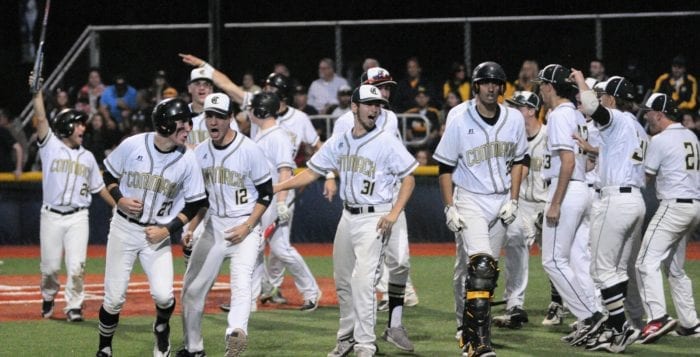Before we race through August and land on September, I’d like to suggest that we stop and smell the roses, among many other scents of summer.
At the top of the list of smells, on an island where marine life is never far away, is the smell of the ocean. As we lounge on our soft towels, caressed by a gentle breeze, we can breathe in the reviving, sweet smell of salty seawater.
Go to any beach during a summer day and you’ll also find the odor of sunscreen filling the air, courtesy of those spray-on bottles that seem to miss their target and head for the nostrils of the nearest sunbather as often as they reach exposed skin. While you may not want to eat sunscreen in getting away from your office, the smell can help you appreciate your favorite season, as is the case for my wife.
When you’re driving around town, you might reach a stop light or stop sign adjacent to a freshly cut lawn. I’ve always connected that smell with baseball fields, primarily because people started trimming their lawns around the same time as I played my abbreviated baseball season. When I was younger, I had as many games on my schedule in a year as this next generation seems to play in a month.
The atmospheric conditions in this light-intensive time collaborate to liberate the smell of mouthwatering food. At night or on weekends, the smell of a cookout can often encourage us to make a U-turn back to the supermarket to pick up some burgers, hot dogs and chicken.
I can’t drive anywhere near The Good Steer in Lake Grove without my nose acting like a sensory GPS, taking me back to my childhood and the spectacular onion rings that filled my plate.
Stand near just about any bakery in town and you’ll often have the opportunity to enjoy the best form of marketing, as the scent of freshly baked breads and cakes drifts down the street, leading us by our noses to their glass-enclosed treats.
When we were younger, my mother used to get on a sailboat, unpack our pretzels, turkey sandwiches and cold waters, pick up her head as if an old friend had called to her from the middle of the Long Island Sound and proclaim, “Oh, smell.”
Now, I recognize that the world is filled with the kind of foul odors that can turn a subway ride into a trip to “Dante’s Inferno” and that a visit to a friend’s house can also bring the pungency of wet dog to our nostrils.
The heat and the humidity, after all, is an equal-opportunity odor elevator, bringing everything to our attention including an awareness that the guy in the car next to us had garlic at lunch or the woman in line at the deli fell into the marsh in the morning.
Still, I prefer to focus on the proverbial odor glass as being half-full, as did some of my friends, who shared their favorite summer scents.
One person’s favorite smell is that of rain after the first drops fall, while another enjoys honeysuckle and the smell of jasmine from her native Beirut. A third enjoys the scent of coconut with lime or pineapple, and a fourth sings the praises of pine trees, mushrooms and wildflowers that remind him of his youth.
When we breathe in deeply enough these moments of summer rain, honeysuckle, coconuts and wildflowers, we can slow down the treadmill of time.





